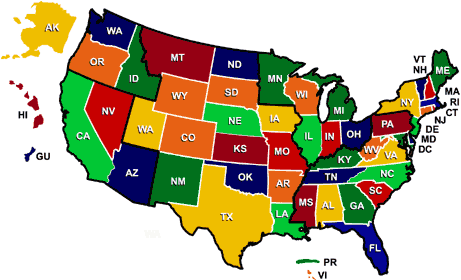 One of the questions that I get from my iLoveRealEstate.tv students is when they should make that big move and buy property in an overseas market. It’s a great question and one that has more than one answer…
One of the questions that I get from my iLoveRealEstate.tv students is when they should make that big move and buy property in an overseas market. It’s a great question and one that has more than one answer…
But calculating the right answer for you has a few variables in it that you need to figure out. I’ll get to those in a moment. Once you figure out your variables, though, and you can tick off all the boxes, the answer will be obvious.
In the meantime…
The short answer is “Yes, you definitely should be buying overseas!”
That’s what I tell my successful students–Platinums usually–who have reached the point where they are not only ready financially, but are also educated well enough to do it right…
And that is one of the many areas that I teach you in my iLoveRealEstate.tv Courses. Believe me, you don’t want to go into a deal in a foreign country even the slightest bit unprepared!
You see, you’ve got to know what you’re doing and have both the time as well as the financial resources to make it work for you…
Economic diversification means protection
When those pieces fall into place, there are quite a few advantages and you can reap the benefits of overseas real estate investing.
One of the most obvious advantages is that overseas investing brings economic diversity to your portfolio.
This means that you are not just depending on the local economy where your properties happen to be, or even the Aussie economy as a whole, for continued growth and income in your portfolio.
You can USE A FOREIGN PORTFOLIO AS A HEDGE AGAINST ECONOMIC DOWNTURN…
As you know, a big part of our Aussie economy is based upon mining and commodity exports. It’s no secret that the global commodity markets can be a bit shaky when the economies of other countries run into a bit of a slowdown.
I’ve talked about this dynamic before, but will revisit it briefly here…
We export a great amount of our commodities like iron ore, coal, nickel and other mining products to China and India. It’s a big part of the Australian economy. China makes all kinds of manufactured goods from what we sell to them…
China’s biggest trading partner for manufactured goods is the Eurozone. When the Eurozone has a recession, their demand for China’s goods goes down, and likewise, China’s demand for commodities falls.
Legal protection is key!
That’s why investing in properties overseas is a smart idea. The key is to invest in the right properties in a different economy that is less affected by the global commodity market
But not only do you want to buy in a place with a different economy, but also with an excellent legal system. You want strict laws protecting private property and a legal system that is transparent and functions properly.
As you know, I spent the month of July in the U.K. The British economy is certainly differently arranged than ours and I saw some very good real estate investment opportunities there, visiting properties from Ireland to Wales to Cornwall. As always, you want to hire local experts in real estate and legal counsel wherever you invest.
The U.S. is another prime place to invest in real estate. There are still very good bargains in properties in many states from coast to coast. Some of the returns are double-digits! And needless to say, the U.S. economy is quite a bit more diverse than ours, and quite a bit larger as well.
Are you really ready to buy?
Now let’s talk about your personal situation when it comes overseas investing…
A few questions to ask yourself:
If number 5 applies to you, you’re not ready. If numbers 1-4 apply to you, then you probably should be looking to diversify your portfolio with overseas properties.
When you do, you’ll be able to take advantage of economic diversity as well as different financing situations. In some cases, such as in the U.S., you will find lower interest rates on mortgages than you find here…at least for the moment. There will also be different loan packages available.
Prepare, proceed and Succeed!
Even with some of these advantages, however, there are several issues you need to be prepared for.
For example, no matter how big your portfolio may be in Australia, you can’t use your property as collateral for a loan for a foreign property. That means you’ll be paying cash for the property…or at least for the down payment.
Not only that, but no Aussie bank will loan you the money here to buy a property over there. You will have to qualify for a loan from a bank located where you’re buying the property. That means taking the time and money to establish a banking relationship there, a financial identity and other types of necessary financial preparations.
These things aren’t impossible to do, but they do take planning and financial resources. Also, when you’ve bought your property overseas, say, in the U.S., for example, you won’t be able to use the income from that property to qualify for a loan in Australia.
This means that whatever money you invest overseas, it will do your portfolio the most good being reinvested there, not here! That’s why you need to be sure that you have the financial depth to divert capital from here to there and still maintain or grow your Aussie portfolio.
Like every real estate investment plan, your success begins with knowledge, skill and developing enough resources to make it happen. Whether it’s in Australia or overseas, your successful real estate investing career begins with ILoveRealEstate.tv!